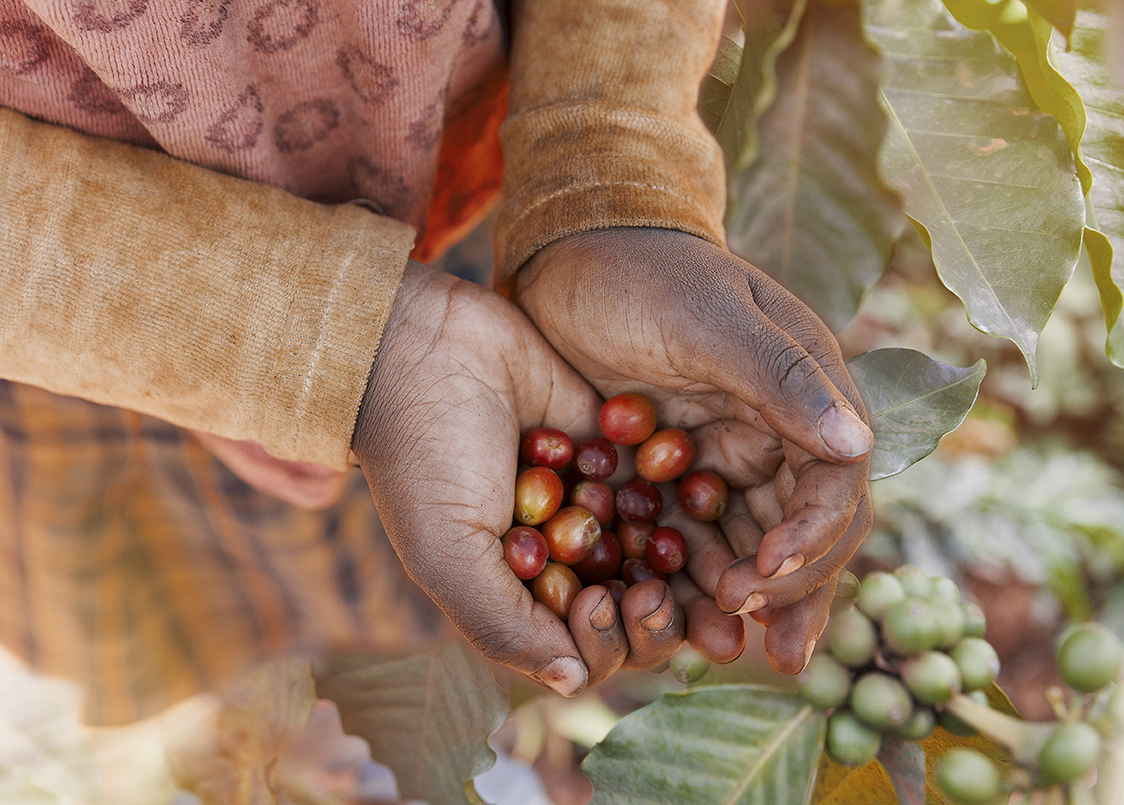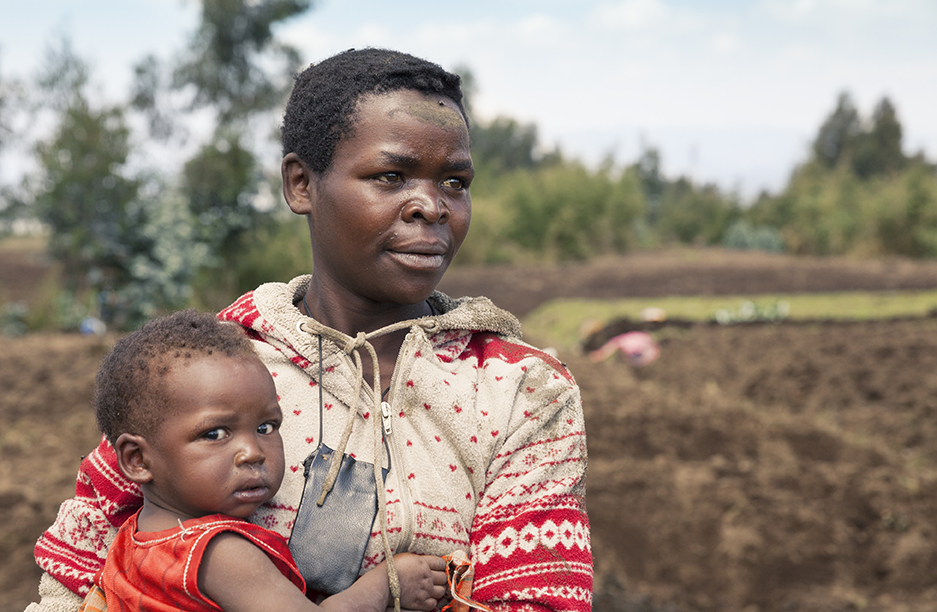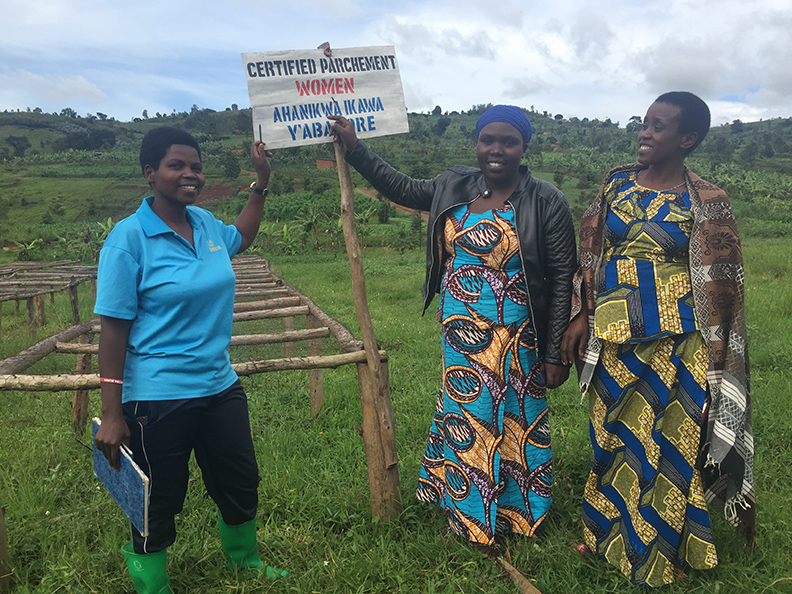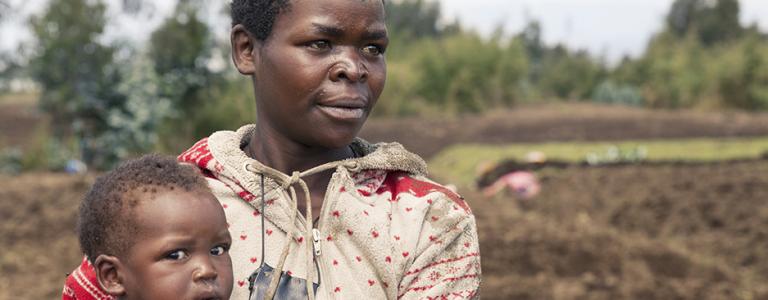Should Farmers Who Follow Sustainable Practices Be Rewarded?
Meeting sustainability standards can have valuable benefits for smallholder farmers, but what happens when the product fails to sell?
Ensuring certification reaps rewards: the case of a Rwandan coffee cooperative.
Participating in certification programs and meeting sustainability standards can have valuable benefits for smallholder farmers and fulfil environmental and social objectives. But what happens when, despite the time and money invested in certification, the product fails to sell?

Last month, as part of IISD’s State of Sustainability Initiatives program, I visited a coffee farmers’ cooperative in the eastern region of Rwanda to see how their efforts to obtain certifications had affected their community.
The group, known as Cooperative Abakangukiyekawa, has 540 members and has been certified Fair Trade since 2006. It is now working to obtain Rainforest Alliance certification.
Meeting certification criteria requires farmers to invest money and time in reshaping their production, processing and business practices. The expectation is that the market will reward farmers for these efforts, by buying their certified product at a higher price, for example, and improving their market access.
Domestic advances, international challenges
While I was in Rwanda, the farmers proudly showed me the advances they had made in their efforts to meet the certification criteria. They set up terraced plots to prevent soil erosion; nurseries to grow trees provided shade for coffee bushes and created live fencing, thus reforesting their community; and filtration tanks prevented water source contamination from coffee bean processing.
They also showed me how they segregate their coffees throughout the process, ensuring the coffee’s traceability from farm to buyer. The cooperative even revised its payment process, to pay farmers immediately when they deliver their coffee “cherry” to the processing (washing) station.
The cooperative has to borrow money to pre-finance the harvest, which covers operational costs and ensures immediate payment for farmers when they deliver the cherry beans. This particular cooperative is fortunate enough to borrow from a semi-governmental bank that charges 8.5 per cent annual interest, compared to fully commercial banks that charge two or three times that amount.
But the cooperative members then showed me their warehouse, which housed a full third of the year’s production that has not yet sold. The Rwandan harvest runs from March to May, meaning this coffee has been sitting, unsold, for the past eight months. If the cooperative cannot sell the coffee by February 2019, they will pay a fine of 2 per cent.
This situation is largely created by volatile commodity markets, which farmers cannot control. The price of coffee on international commodity markets (New York “C” market for coffee) dropped substantially in 2018, making many buyers unwilling to pay the Fair Trade minimum price. That price is designed to cover the investments and costs that farmers must bear to obtain the certification.
The Fair Trade minimum price and price premium are fundamental for the cooperative and its members to manage their farms sustainably. The money these farmers earn also allows them to invest in social and community development projects, which cooperative members often run themselves.
Farmers such as these ones in Rwanda are ultimately operating within a larger international trading system that often does not value the environmental, social and economic efforts of farmers. However, these same farmers are also running a business and must feed themselves and their families from what they sell, especially if they are smallholders.
Despite the many benefits from certification, the fines, loans and uncertainty around prices have placed a hefty financial burden on the cooperative and its members, and they are desperate for a solution.
Identifying challenges and solutions
At IISD, we work with key stakeholders in Rwanda, such as government representatives, the private sector and producers, to help improve the situation of smallholders using certification. The goal is to identify and address the major challenges facing smallholders who enter sustainable coffee programs.

Together with institutions such as the Rwanda National Agricultural Export Development Board (NAEB) and Sustainable Growers, IISD is developing a multistakeholder platform to share impact data on sustainability programs so that we can better assess what does and doesn’t work. This information is essential for stakeholders to identify and implement solutions to these challenges.
Cooperative Abakangukiyekawa is a prime example of some of the challenges farmers often face, particularly that of oversupply—a costly problem that, if not addressed, could disincentivize farmers from participating in certification programs and meeting sustainability standards. Some possible solutions include matching the supply with the demand of certified products, along with supporting government policy to enable sustainable supply chains and trade. Further steps include lowering the transaction costs involved in obtaining certifications, along with providing access to training and affordable finance for smallholders.
These farmers are helping the global environment and their local communities by undertaking environmentally and socially responsible actions and investments. Unfortunately, despite their efforts, they are unable to sell much of their certified product, making it harder to support their families and communities.
The entire supply chain, and fundamentally consumers, has a responsibility to support these important actions by demanding high-quality, sustainably produced and certified products, such as the coffee from Cooperative Abakangukiyekawa.

The SSI is an international transparency and capacity-building project aiming to improve strategic planning and sustainable development outcomes related to VSSs by providing in-depth, credible and needs-based information. The project is funded by the Swedish International Development Cooperation Agency (SIDA).
You might also be interested in
Promoting the Development of Agricultural Cooperatives
Governments in the Global South should promote agricultural cooperatives to boost smallholder access to fair markets, finance, and climate resilience.
How Can World Trade Organization Rules and Flexibilities Promote Food Security in Least Developed Countries?
Least developed countries (LDCs) need more investment in agriculture to increase their agricultural productivity and promote their food security. Existing World Trade Organization (WTO) rules and flexibilities on agricultural domestic support can help. New WTO rules and flexibilities can also help LDCs attract more private investment to increase their agricultural productivity and promote their food security.
Adding Fuel to the Fire: How export restrictions can exacerbate climate change’s impacts on global food security
Higher temperatures will likely reduce agricultural yields and production in most countries, raising global food prices and worsening food security. Avoiding export restrictions is crucial.
Addressing Soil Acidity and Enhancing Soil Health
This policy report addresses the critical issue of soil acidity in the East African Community (EAC) and provides actionable recommendations for EAC partner states, the EAC Secretariat, and other relevant stakeholders.
